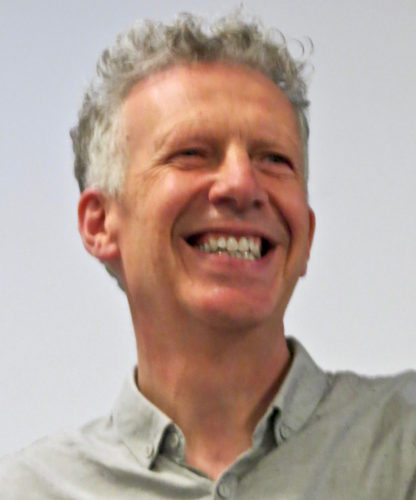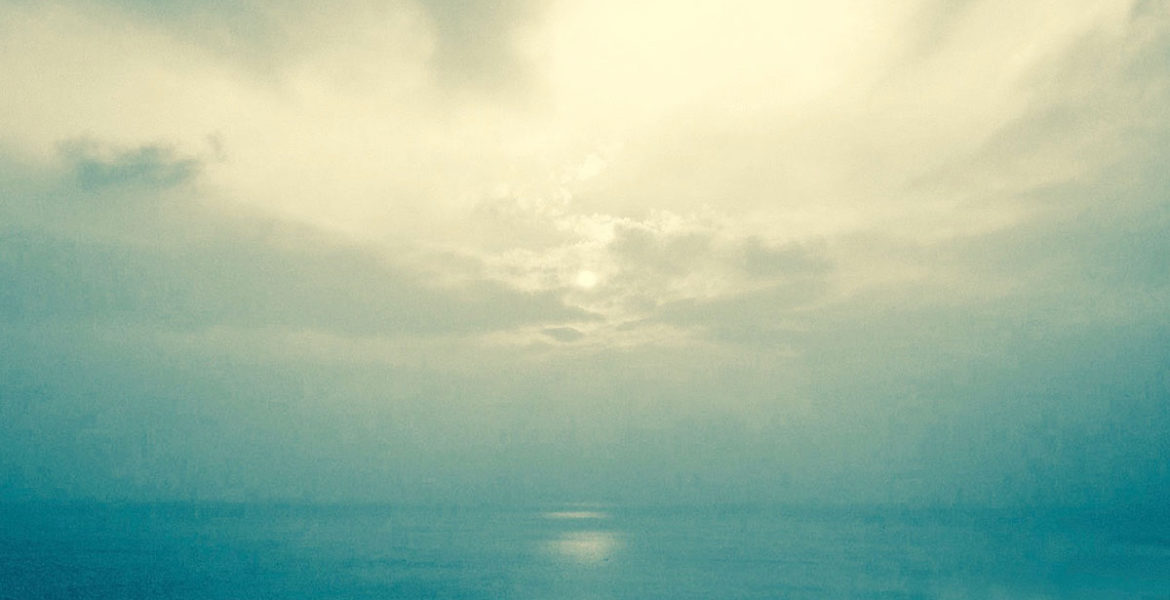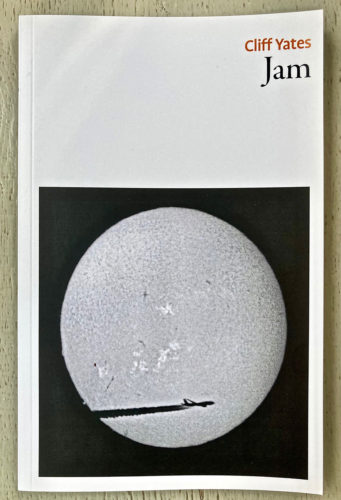Former Poetry Society poet-in-residence and Royal Literary Fund Fellow, Dr Cliff Yates explains what drew him to poetry – the distinctive value of silence in the process of writing. This inspiration led him to not only develop and hone his skills as a highly regarded poet, but to teach and inspire others to locate the field of infinite silence in consciousness, the source of all creative expression, which is directly experienced through practice of the Transcendental Meditation technique.
I wrote my first poem in 1985. I had learnt Transcendental Meditation in 1973 while studying for my first degree, in English and American Studies at Swansea University. I read as much poetry as I could in those days, and although I had always wanted to write, I had no idea how to go about it. Twelve years later, teaching English in a comprehensive school, I discovered how.
How to Write
I was in a workshop with the poet Pete Morgan, on a residential course for English teachers in Anglesey. Pete got us playing the furniture game, where you think of a person and then ask yourself questions, e.g. if this person was a piece of furniture, what would they be? I found myself completely carried away by the writing, as if it was going entirely by itself. I had no idea where it was heading but didn’t need to know. And when I read my poem aloud afterwards, there was a silence. The feeling was amazing. I knew this was it: I’d discovered how to write.
You Have Control over Action Alone
The principle that I had discovered is expressed in one of my favourite quotations from the Bhagavad-Gita in the translation and commentary by Maharishi Mahesh Yogi, founder of Transcendental Meditation: ‘You have control over action alone, never over its fruits. Live not for the fruits of action, nor attach yourself to inaction’ (Chapter 2 Verse 47, Penguin, 1972). Maharishi explains in his commentary:
“Having fixed the objective, having begun to act and having become intimately engrossed in the process of action, he should fulfil the action with such complete devotion and undivided attention that he is oblivious even of its fruits. Only in this way will he achieve the maximum results from what he does.”
– Maharishi
Process
The reason I had found it impossible to write poems for so long was that in the back of my mind was the thought that it would be impossible to write something as good as the work I admired. I had been preoccupied with the outcome, and when I started giving my full attention to the process of writing, the poems took care of themselves. Writing with no fixed idea of the outcome wasn’t a disadvantage; on the contrary, it allowed me to write. The freedom from doubt allowed my mind to settle down, and the experience was that writing started to flow.
The Flow
In the article ‘The Quantum Theory of Literature: The Flow of Consciousness is at the Basis of all Literary Expression’ published in The Flow of Consciousness: On Literature and Language, (MUM Press, 2010), Maharishi defines literature as ‘a flow of consciousness…a flow of life.’ A play by Shakespeare, he says: ‘has silence and activity and silence and activity. This is exactly the evolutionary process. There is always a flow in nature.’ I am sure that all art can be discussed in the light of this quotation. One of the things that draws me to poetry in particular is the distinctive way in which it uses silence.
The Lesson
The nun points out the ones to watch:
the boy in the corner, the girl at the back.
In this class it’s the boy in the middle
who thinks he’s a cat.
Outside, workmen are felling trees.
A bird’s nest tumbles in through the window,
lands on a desk. Inside the nest, a baby bird.
It’s okay it’s okay, the children say,
Brian will know what to do.
The boy who thinks he’s a cat
gathers the bird and, holding it
at arm’s length in the cup of his hands,
heads for the door, the nun behind him
between the silent rows of children
and the bird, as if on cue, lifts up its beak and sings.
I wrote this poem (which appears in my collection Jam, Smith/Doorstop, 2016) in response to a story told to me by a novelist about her visit to a catholic school where the children were taught by nuns. An organiser of a poetry event once introduced me by reading the first two stanzas of ‘The Lesson’, finishing with ‘Brian will know what to do.’ What struck me was the audience’s reaction: it was as if everyone held their breath. It’s a turning point in the poem because you don’t know what is going to happen. There is a pause there, a gap, a period of silence. There are, of course other gaps, or silences: at the end of every line in the poem, particularly after lines four, seven and twelve, and, not least, at the end of the final line.
The Reader Completes the Poem
Another way of looking at gaps, or silence in a poem is in terms of absence. A poem is completed by the reader, and writing poems is about knowing what to leave out: leaving gaps and trusting the reader to fill them. When the children say, ‘Brian will know what to do’, for example, the reader knows that Brian is the boy who thinks he’s a cat. The poem trusts the reader to make that connection. The irony of course is that Brian has been identified as ‘the one to watch,’ a potential troublemaker, but the children, in their collective wisdom, are right: he takes the lead and the nun follows him.
Sound and Silence
A poem, then, can be seen as the flow and transformation of silence into sound and from sound into silence. One difference between most poetry and prose is the use of white space on the page, at the end of lines and between stanzas (the case of prose poetry is beyond the scope of this discussion). This space represents silence. And one of the most striking things about hearing poetry read aloud is the silence, both during and at the end of a poem, which struck me so profoundly when I read aloud my poem in that first workshop in 1985. It’s as if a poem creates the space in which silence can be experienced.
During the Transcendental Meditation technique the mind experiences the field of unbounded silence in self-referral consciousness, the field of total knowledge – the source, flow and goal of all creative activity. All poetry emerges from this place deep in the Self of the poet.
About the Author

Cliff Yates, PhD, was Deputy Head and English teacher at Maharishi School in the UK, where his students, who practised the Transcendental Meditation technique, were remarkably successful in poetry competitions. As a result, he was commissioned to write Jumpstart Poetry in the Secondary School during his time as Poetry Society poet-in-residence. He is a former Royal Literary Fund Fellow and TES Guest Poet. He trained as a teacher of Transcendental Meditation in 1975 and leads TM Retreats on Poetry and Consciousness. Cliff Yates is AAE Advisor for Writing Arts – Poetry.
For more information about Cliff Yates, his awards, poetry collections, short stories, poems and articles, visit: www.cliffyates.co.uk


